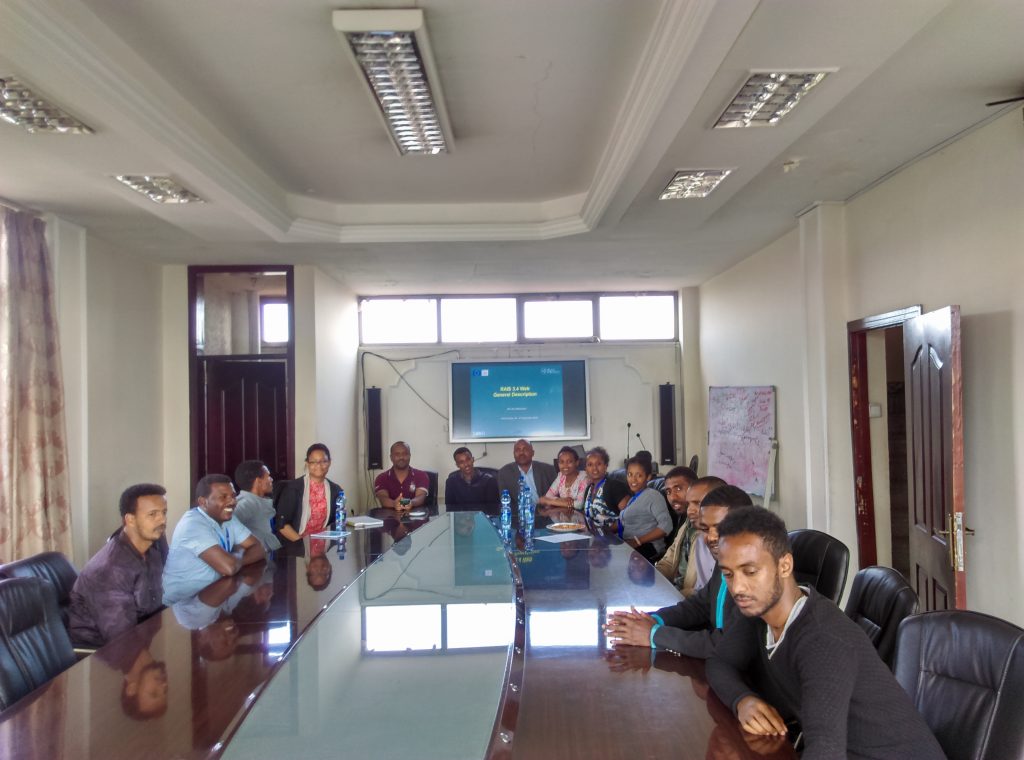The Workshop on Regulatory Authority Information System (RAIS) version 3.4 was successfully conducted at the Ethiopian Radiation Protection Authority (ERPA) facility in Addis Ababa, Ethiopia, from 4 to 7 September 2018, within framework of the project P60 “Support to the EU CBRN ECA CoE in nuclear security”.
The Workshop had 25 participants, staff of the Ethiopian Radiation Protection Authority. The participants belonged to different departments and organizational teams including the (Notification Team, Authorization Team, Inspection Team and the Enforcement Team. One participant was from another Partner country, Seychelles, currently at ERPA on a Fellowship.
The first day of the Workshop was devoted to the general presentations and detailed clarification on the RAIS. The Consultant provided 3 detailed presentations on RAIS, i.e. on general description of the system, on RAIS 3.4 Web Regulatory Model and on RAIS 3.4 Web User’s Guide. The differences and upgrades between the RAIS versions 3.2 and 3.4 were also explained. The RAIS 3.4 version was demonstrated and participants had opportunity to ask practical questions and discuss their experience in using the RAIS version 3.2 in comparison with the new features of the version 3.4 that were presented.
The following three days were devoted to practicing use of the RAIS 3.4 software. The participants were divided into 5 groups of about 5 to 6 persons exercising use of different RAIS features. They were requested to list, view, add, edit or delete different regulatory data, such as data on facilities, authorizations, inspections, workers, etc., so they practiced the use of data tables, as well as questions, report preparation and other advanced features of RAIS.
The use and the details of other features available in RAIS, such as Query, Statistics and Tools were also explained and subsequently demonstrated. Advices on how data stored in RAIS could be used to support the regulatory authority in managing spectrum of its responsibilities related with radiation sources, from routine regulatory activities like licensing and controls to specific tasks like analysis and follow-up actions, were provided.
At the end of the Workshop, a debriefing was organized. All participants provided feedback on the quality of the workshop, which was highly positive. In particular, the participants stressed the highly useful elements of the Workshop that will help them in being more effective and efficient in implementing the acquired knowledge in their regulatory tasks.


